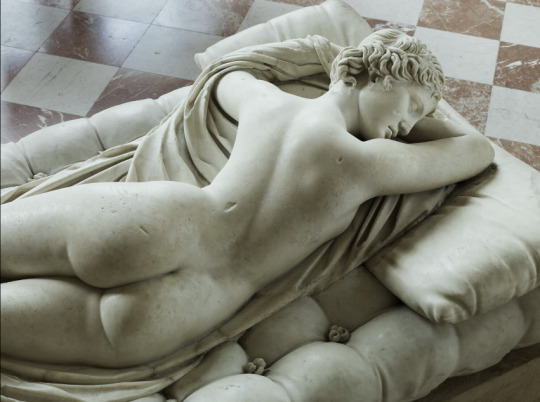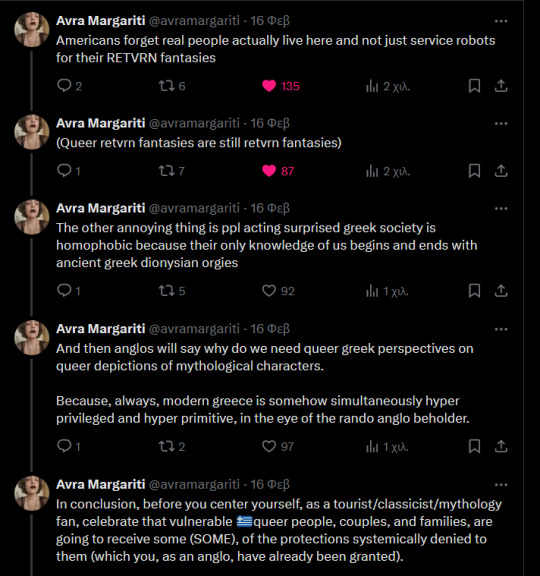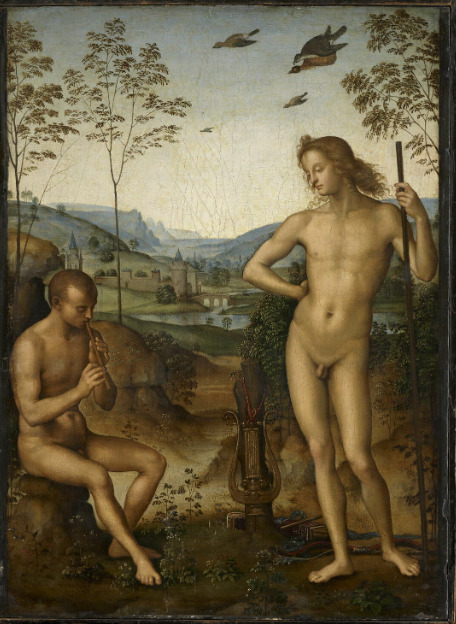#queer greek history
Explore tagged Tumblr posts
Text

“Take the first step today and become the homosexual you want to be!”.
Thessaloniki, Greece, 1994.
#thessaloniki#lgbt greece#queer greek history#ομάδα πρωτοβουλίας ομοφυλόφιλων θεσσαλονίκης#λοατκι+#vintage queer flyer
90 notes
·
View notes
Text


Sleeping Hermaphroditus, II century D.C
#galleria borghese#louvre museum#hermaphrodite#hermaphroditus#polycles#art history#art#roman art#ancient rome#antiquity#roman history#greek mythology#ancient greece#roman empire#sculpture#marble#queer history
516 notes
·
View notes
Text
A little acoustic demo release for you! Both a new song and also arguably the oldest Forgetmenauts song, written by Walker in the early 2010s & first released under their moniker Mountain Gnomes. A full band version will be on our upcoming album, likely to be released in 2025. Happy Bandcamp Friday! Download it today if you want us to get a full cut of the proceeds <33
#the forgetmenauts#music#new music#original music#fantasy#folklore#art#art history#mythology#daphne#apollo and daphne#greek myth#queer#gay#lgbtq#sure trans allegory why not#the original myth. might as well be one#Bandcamp
125 notes
·
View notes
Text

Dionysos, also called Zagreus, is the god of rebirth, renewal, and wine. Additionally, he is the god of liberation and freedom. To me, he represents freedom for all people, especially the oppressed and the minorities. Dionysos is also heavily intertwined with queer history, and his own mythological stories reflect his gender non-conformity and androgynous nature. One of his epithets is literally "Ανδρογυνος." In the Roman period, the Emperor Hadrian ordered the deification of his lover Antinous, who tragically drowned in the Nile River. Even after his death, the cult that had formed around Antinous continued to thrive, creating statues which bore Antinous's youthly face. These statues also blended imagery of Osiris and Dionysos. Thus, even after death, this man wore the guise of a god, and lived on in a sense. Another fun fact I wanted to add, while reading up on a specific statue of Antinous/Dionysos, this one, I came across the little tidbit at the bottom which suggests that during the criminalization of homosexuality in the USSR, underground gay communities would perform wedding ceremonies and rites in front of the statue.
#hellenic polytheism#hellenic pagan#greek polytheism#paganism#paganblr#hellenic paganism#religion#theoi#helpol#history#dionysos#dionysus deity#bacchus#queer#queer gods#queer history#lgbt
120 notes
·
View notes
Text

This! The tweet references this tweet where foreigners proceeded to rejoice about their vacation in Greece as a first reaction after hearing about how the brutal reality of queer Greeks has been alleviated. Are you for FUCKING REAL people?? You make me wanna puke! Were we ever people to you? Or just a fancy destination and some vague ancient texts of a "dead" language, that you never cared to associate with the actual Greek culture and people??
I saw the majority of these comments came from USians and I implore you specifically to shut your fucking face. This shouldn't be your reaction to a foreign marginalized group (that is still in danger) gaining rights. The privilege of living in the country that controls Greece has gotten to your head, and unfortunately, I see this attitude from all US marginalised groups also.
You are clearly NOT ready to discuss how your country has been profiting from exploiting our culture, and that the way you see us for centuries now reeks of the neocolonialist attitudes.
Even when we are happy when for the first time in our history our existence is legal MUST WE cater to your voyeurism and "ancient Greek" fantasies? Not to mention the continuous eyerolls I had seeing people expressing they thought Greece is a gay paradise since antiquity... B R U H .... It was never legal or non-shameful for us to be gay! N E V E R . Check ancient texts and laws. It was never legal or pleasant for us here!
More from the tweet here:

#if you care about lgbt+ people in Greece reblog or repost this please#LGBT+ GREEK PEOPLE OWE YOU NOTHING#WHEN WILL YOU SEE US AS FUCKING PEOPLE#I'M SO FUCKING TIRED#lgbt+ community#lgbt+ history#queer history#greek history
389 notes
·
View notes
Text
Sappho - Queer History and what Lady Aphrodite had to do with it
As it’s currently pride month, I couldn’t think of anything better suited to talk about this month than Lady Aphrodite’s role as the Patron of Lesbians.
Sappho’s poetry was mostly lost, and only fragments remain, with the first of these fragments and the one which is considered to be the only completed one (as there are only two parts where it’s hard to understand it) is her Ode to Aphrodite, through which Aphrodite gets labelled the patron of lesbians.
This poem is written in Aeolic Greek and Sapphic stanzas, a meter where three long lines of the same length were followed by a fourth shorter line. It was written in first person and was one of the most important things which proved that Sappho was in fact queer, as the person mentioned to be the object of her desires was female . The poem was written in form of prayer to Lady Aphrodite, and was written how most Ancient Greek hymns are, in three parts.
The contents of the poem were the speaker asking for Lady Aphrodite’s help in her longing for an unnamed female who’s caught the speaker’s eye. The speaker (who it’s believed to simply be Sappho) asks for Aphrodite’s help in easing her pain from the unrequited love she’s experiencing. After being invoked, Aphrodite appears to Sappho and comforts her by saying that the woman who rejected her will someday pursue Sappho herself. The poem ends with the speaker asking the goddess to help her in all her future romantic struggles.
Overall, this poem showed Aphrodite as a kind and caring goddess and helped cement the idea that she is happy to help wherever she can, no matter if it’s homosexual relationships or heterosexual relationships you find yourself in, which would help a lot of people come to terms with their sexuality, and would help a lot of her queer worshippers nowadays.

#hellenic polytheism#aphrodite deity#greek gods#greek mythology#aphrodite#aphrodite devotion#aphrodite worship#aphrodite devotee#lady aphrodite#pride month#queer history#sappho
194 notes
·
View notes
Text
Ovid's Myth on Hermaphroditos is Dubious at Best

We do not have much information on Hermaphroditos, but the most popular myth about him is the one written by Ovid. This is not the only myth on Hermaphroditos, and it actually, in my opinion, is untrue and kind of sucks.
❛ ━━━━━━・❪ 🎕 ❫ ・━━━━━━ ❜
If you have not heard it, it recounts the story of the nymph Salmacis raping a young Hermaphroditos. During this assault, Salmacis wishes for their forms to be merged together, resulting in the mixed-sex characteristics that we know Hermaphroditos for today. However, I have good reason to believe that this story is untrue.
There exists an inscription from the Anatolian city of Halicarnassus that tells a different account of the story of Hermaphroditos. It wasn't translated until 1998, but predates the writing of Ovid’s Metamorphoses by around 200 years. It states:
“And Halicarnassus settled the delightful hill beside the stream of Salmakis, sung of as dear to the immortals, and her domain includes the desirable home of the nymph, she who once received our child in her kindly arms and reared Hermaphroditos the all-excellent, he who invented marriage and was first to bind together wedded couples by his law, and she herself beneath the holy waters in the cave that she pours forth makes gentle the savage minds of men.”
In this account, Salmacis is named as the nymph that cared for Hermaphroditos as a child. An assault is never mentioned, and she is clearly of far different character, who is described as kind and admired by mortals and immortals alike. From this account, we can also infer that Hermaphroditos was born intersex, as no such transformation later in life is given a mention. Furthermore, in Lucian’s Dialogues of the Gods, while satire, it is given a passing mention in Dialogue 22 that Hermaphroditos was born with both male and female traits.
All of this this is without even mentioning Ovid’s odd fascination with rape. According to Leo C. Curran’s article Rape and Rape Victims in the Metamorphoses, there are “fifty or so occurrences of forcible rape, attempted rape, or sexual distortion hardly distinguishable from rape” in The Metamorphoses. If I’m honest, I think Ovid just liked to cram in stories of sexual assault whenever he could, and did so when writing his own account of the story of Hermaphroditos.
As a disclaimer, I invite you to follow any myth you please. I’m just personally not a fan of Ovid and I would ask you to reconsider some of his recountings of myths.
❛ ━━━━━━・❪ 🎕 ❫ ・━━━━━━ ❜
Sources:
Lloyd-Jones, H. (1999). The Pride of Halicarnassus
http://www.jstor.org/stable/20190332
Curran, L. C. (1978). Rape and Rape Victims of the Metamorphoses
http://www.jstor.org/stable/26308161
Ovid’s The Metamorphoses
Lucian of Samosata’s Dialogues of the Gods
#tw assault#hermaphroditus#hermaphroditos#aphroditus#aphroditos#hellenic pagan#hellenic polytheism#paganism#hellenic paganism#helpol#hellenism#history#anthropology#greek mythology#mythology#queer#lgbt#lgbtq#intersex#trans#transgender#ovid#ovid's metamorphoses#archaeology
45 notes
·
View notes
Text
Alexander & Hephaestion

#alexander the great#hephaestion#alexander hephaestion#alexander x hephaestion#achilles and patroclus#history#reading#writing inspiration#writing#character inspiration#greek mythology#historical fiction#booklr#queer#homosexual#achilles#patroclus
28 notes
·
View notes
Text
Humanity really peaked with the chiton. Fashion has been all downhill since we moved away from drapey tube clothes
#local queer classicist posts#typed as I lounge in my linen doric chitoniskos#favorite piece of clothing 10/10#bring back fashion tubes#classics stuff#chiton#ionic chiton#doric chiton#ancient greece#ancient greek fashion#fashion#fashion history#tagamemnon
26 notes
·
View notes
Text
Alexandre: Hephaestion completes me.
Roxana: Um…hello?
Alexandre: You’re nice too, Rox.
Roxana: I’m your wife.
Alexandre: Ah, but Hephaestion is my soulmate. Huge difference.
#alexander of macedon#alexandre the great#fy#history#queer history#lol#joker but true#greek quotes#greco#alexander x hephaestion#alexander the great#alexander the gay#ancient greek#hephaestion#alexandre x hephaestion#alexanderxhephaestion#hephaestion amíntoro
81 notes
·
View notes
Text




Κοντροσόλ Στο Χάος (1986 - 1992)
#κοντροσόλ στο χάος#greek tumblr#λοατκι#queer greek history#αλέξης μπίστικας#δημήτρης παπαϊωάννου#queer magazine
43 notes
·
View notes
Text
There's no actual proof there was hetrosexuality in ancient Greece, as much a lot of cishet teens online like to say there was. Yes they had a strange ritual known as marriage where older men would sexually exploit young girls, but that doesn't mean they had modern views about hetrosexual love being accepted.
Yes, I know a lot of people ship Orpheus and Eurydice nowadays, but that doesn't mean the ancient Greeks saw them that way. They were very close, and we know he cared about her enough to venture into the underworld. But we don't have any explict sex scenes between them in any source, so it could have been a friendship.
Stop trying to impose your modern values onto the ancients.
This isn't my actual opinion I'm making fun of how people talk about queer history.
#196#my thougts#ancient greek#ancient history#ancient greece#greek mythology#orpheus#Euridice#orpheus and eurydice#eurydice#queer theory#queer history#queer#homosexuality#lgbt#queer community#satire#history
71 notes
·
View notes
Text




Apollo and the Shepherd Daphnis, Pietro Perugino, 1475-1500
#art history#art#italian art#aesthethic#painting#ancient greece#greek mythology#15th century#rinascimento#arcadia#apollo#shepherd#daphnis#apollo and daphnis#louvre#gay art#homoerotic art#flute#couples#pietro perugino#queer history#lgbt history#neoplatonism
67 notes
·
View notes
Text

IYKYK 👀👀👀
#queer at last#bacchus#Dionysus#ancient greek mythology#ancient rome#lgbtq history#queer history#IYKYK and if you DON'T know then what are you waiting for - listen to episode 2 of the queer at last podcast!
19 notes
·
View notes
Text

Yannis Tsarouchis “Two men with butterfly wings" 1968
#yannis tsarouchis#moda 365#fashion#fashion blog#fashion blogger#fashion lover#fashion photography#vintage#art#art daily#daily art#history of art#art history#queer artist#queer artwork#queer art history#greek art#greek artist#modern art
19 notes
·
View notes
Text
stop erasing intersex people and our bodies

[photoshopped by me]
#nudity in art#greek architecture#michalangelo#David statue#michalangelos david#sculpture#3d sculpting#photoshop#adobe photoshop#graphic design#graphic art#adobe illustrator#illustrator#digital artist#illustration#digital art#my art <3#draw with jesse#artist support#artists on tumblr#my art#intersex#intersex artist#intersex art#gnc#butch#butch art#support butches#queer history#queer art
41 notes
·
View notes